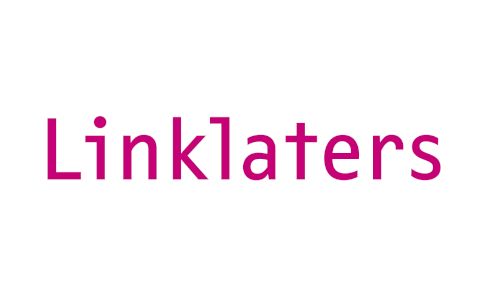- Executive Note
- Editorial note
- Interviews
- Human Resources
- Events Coverage
Is the employer obligated for the oversight of stress management and care for mental wellbeing of employees? Should it form part of a new era workplace relationship framework?
Linklaters | Mar 1, 2024, 17:09


Recent years have brought significant changes to the Polish labour market and the need of employers to face new challenges in workforce management, including due to changes of the law, employee expectations and a new era of workplace relationships.
As several studies have revealed, mental health problems of employees are becoming more openly discussed and are gaining in importance among various issues reported by the employed, caused by the work environment or influencing their decisions regarding changing jobs and loyalty, including in today’s world causing the sensation of anxiety and uncertainty.
The elevated stress levels affect employees negatively, and in particular those working remotely, especially if such a state is prolonged. The unprecedented problems have opened up the floor for employers to arrange for new workplace actions and initiatives, both voluntary and obligatory. There is a rising tendency and awareness among employers to recognise stress management and mental wellbeing of employees as an important element of the workplace safety, retention policy element and absenteeism counteraction and a soft HR policies component. Neglected, it may also trigger employee attrition, workplace harassment claims or other claims, as well as result in occupational burnout.
Under Polish labour law there are no specific statutory provisions that precisely address and govern the issue of stress at work and employer’s obligations regarding tension management during office work. Not to mention specific pathway regarding care for the mental wellbeing of employees or proper trainings for the managers. Specific actions of concerned employers are very often limited by respective GDPR principles and risk of infringement of individual personal rights (including especially where conduct of the employee is a source of concern).
General health and safety rules apply, but the obligations of the employer remain not unambiguously defined. According to the Polish Labour Code, the employer is generally responsible for the state of the occupational health and safety (OHS), which includes among others: an obligation to organise work in accordance with OHS rules, prevent physical/mental injury, prevent accidents and occupational diseases and other diseases, and the application of proper precautions and other required measures. Their purpose indirectly addresses reduction/elimination of stress at work and related consequences.
With respect to health oversight, the employer is also responsible for managing occupational risks. It obliges the employer, notably, to: assess and document occupational risks related to the performance of work and apply the necessary preventive measures to mitigate that risk; as well as inform employees of the occupational risks related to the performance of work, and of the principles of protection against hazards.
Under the Regulation of the Ministry of Health and Social Care of 30 May 1996 on conducting medical examinations of employees, preventive medical health care over the employees and medical decisions for the purposes listed in the Labour Code, a doctor should issue their decision, especially based on the information received from the employer regarding hazardous factors or arduous conditions and in the guidelines for the preventive medical examinations, certain unfavourable psychosocial factors are included.
There are also official norms (Polish Norms) and a matrix issued by the Polish Norms Committee (Polski Komitet Normalizacyjny) in order to assist with an assessment of occupational risk which are not directly imposed but very often applied in practice. Depending on the work performed, the assessment of occupational risk should advisably take into account psychological and mental strains related to the position held.
More recently, the issue of the impact of the work environment on employee mental health emerged in a more structured and general manner regarding remote work. As per the pertinent statutory requirements with respect to remote work, the employer shall, among others, introduce specific OHS rules for the purposes of remote work upon consultation with trade union(s), or (in their absence) employee representatives. As regards the occupational risk assessment, it shall provide information regarding remote work consequences from the perspective of psychosocial conditions, and related counteracting measures should be designated.
On the other hand, on a more practical note and clearly identifying the issue, the State Labour Inspection has issued guidelines on work-related stress that could serve as a helping hand in identification of the related needed actions and workplace stress management on all positions as the aforementioned statutory references identify work stress as rather related to certain positions or obligations than as generally occurring in the workplace due to other factors or management style. However, it remains on a relatively high level, referring mainly to a few hard-law obligations imposed on employers, such as prevention of workplace bullying (mobbing), discrimination or (sexual) harassment, while the remainder of the actions seem to constitute a wide range of good practices, such as an open door policy, proactive management of the personnel, or clear determination of the delegated tasks. The State Labour Inspection has even created generally available directives for counteracting stress at work and its management.
Simultaneously, the issue – various more direct or indirect despite legislative attempts or initiatives openly recognizing the problem and defining processes to address it undertaken at the EU level – seem so far to escape specific direct legislation which may yet come. However, ESG requirements may pave the way for more universally applicable specific solutions but also and predominantly practices/policies to be established and divulged within the ESRS S1.
In practice, other and more concrete mental wellbeing supportive measures are undertaken separately by the employer voluntarily (or by group companies where employee stress management is an obligation imposed explicitly by legislation). The labour market and perception of workplace relationship through the prism of the new era and social element of ESG reporting definitely works towards employer awareness regarding the stress and mental wellbeing of employees. Employers should and do undertake initiatives to support physical and mental wellbeing of employees. These initiatives remain for the time being good practices and require pertinent balance and caution to preserve employee privacy and non-trespass limits in order not to violate employee personal rights. Indirectly, guidelines aimed at stress management are often counselled by the State Labour Inspection or Central Institute of Health Protection and include certain basic but still operational measures.
Hence, the proactive role of HR departments is growing in the rapidly changing and demanding labour market where, gradually, non-obligatory wellbeing initiatives of the employers seem to be attracting and expected by an increasing number of employees but also it may soon become a vital issue from the perspective of ESG reporting.







